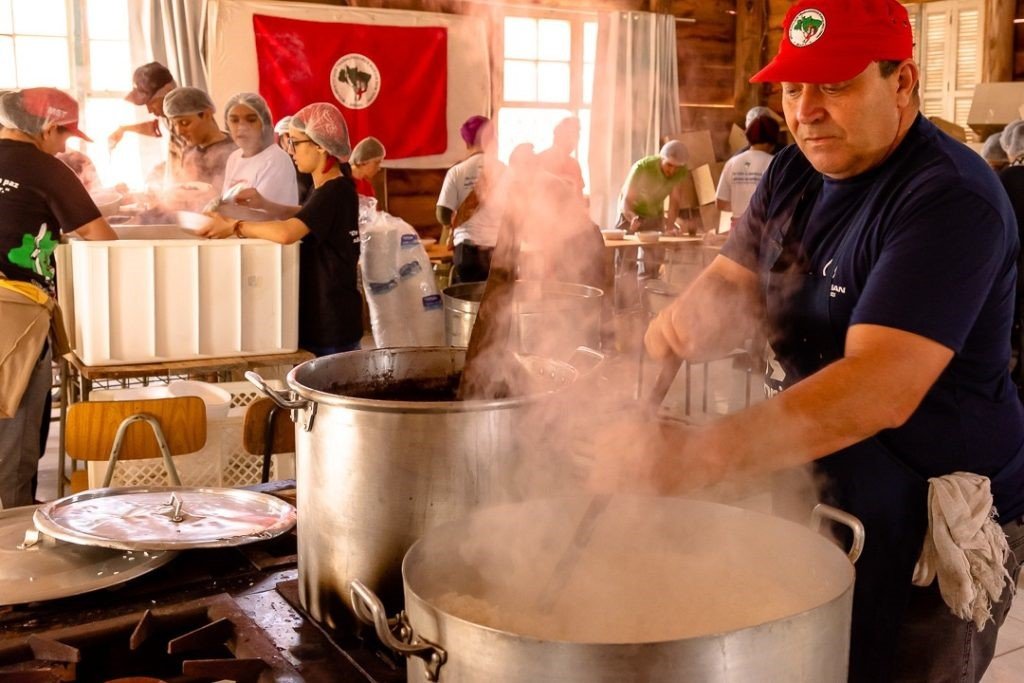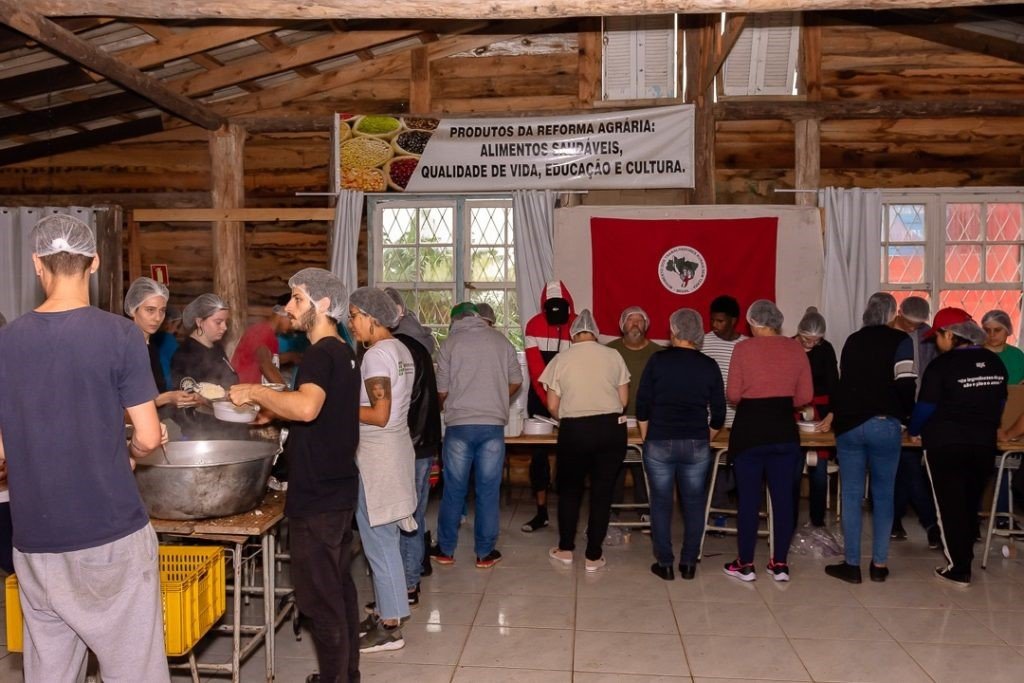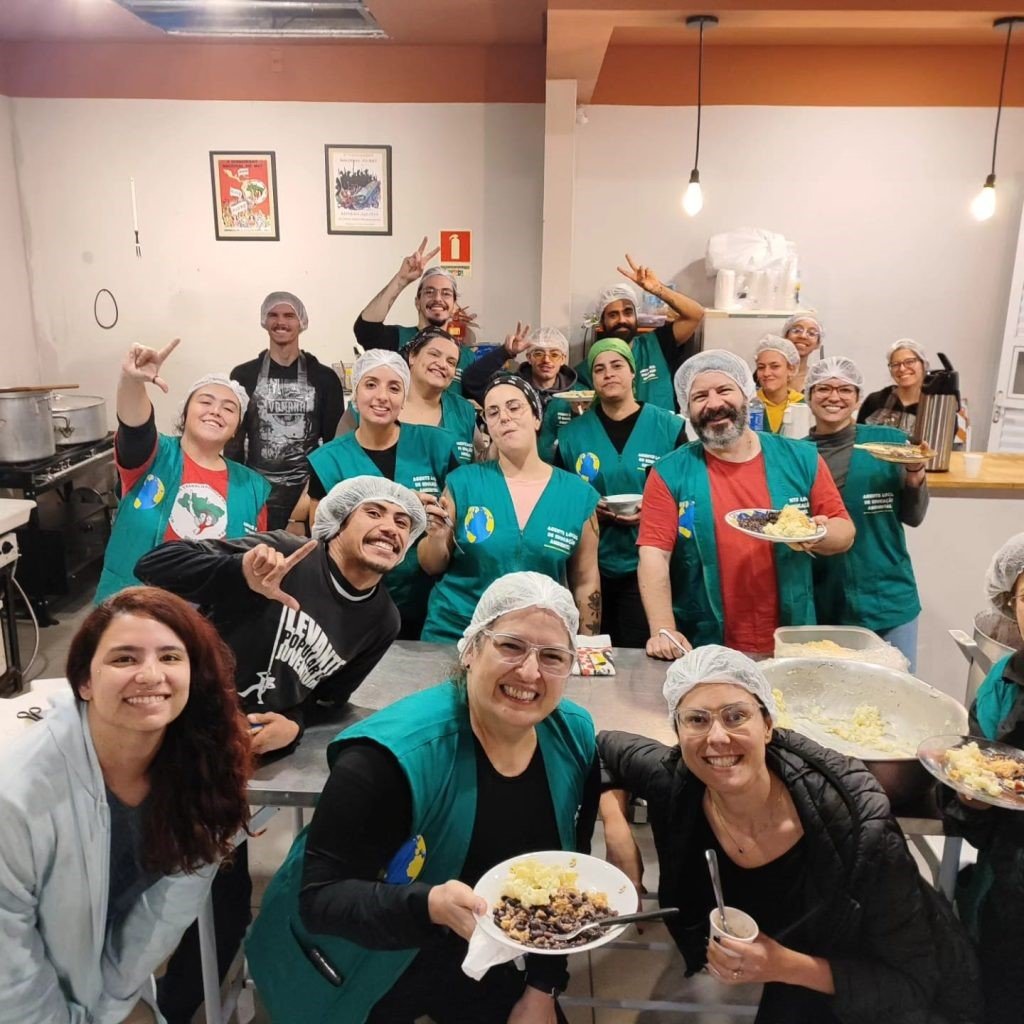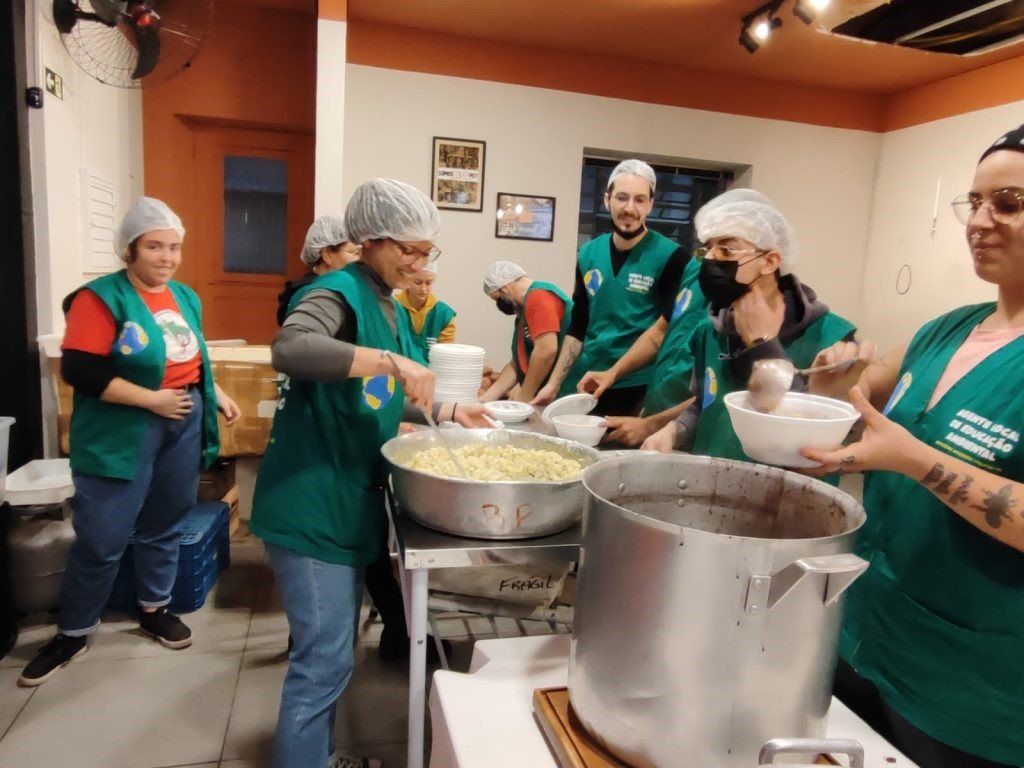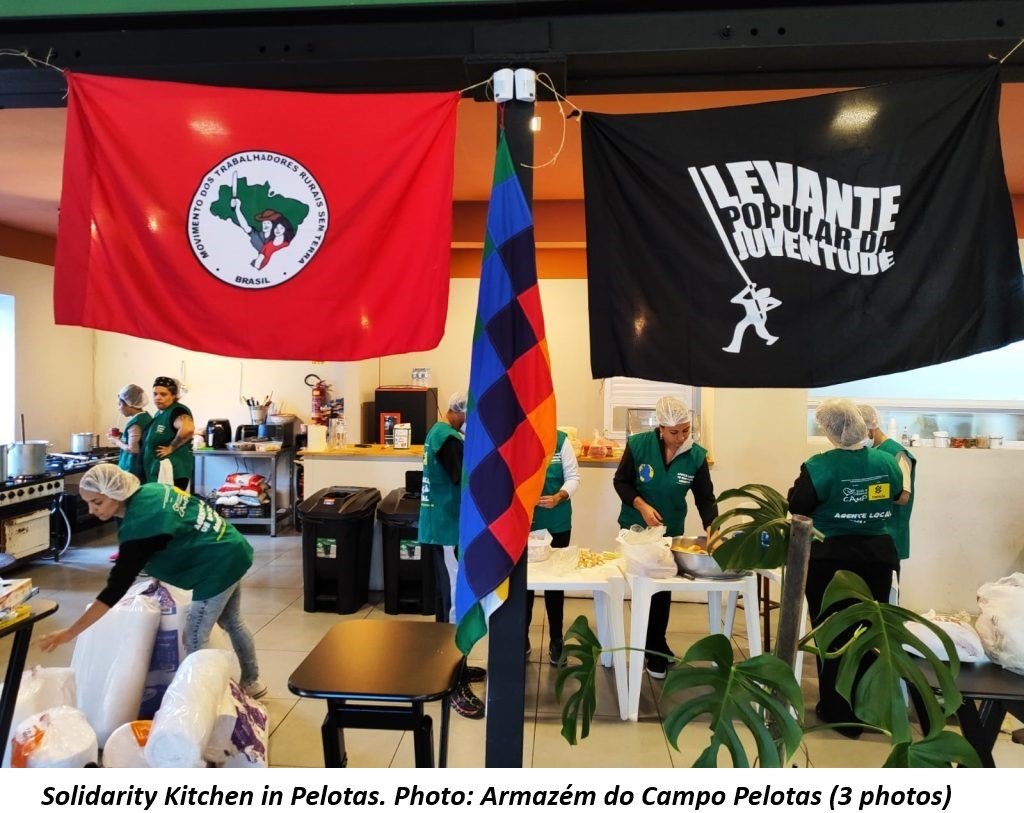Brazil: MST reaches out to families affected by Rio Grande do Sul floods. Urges international support
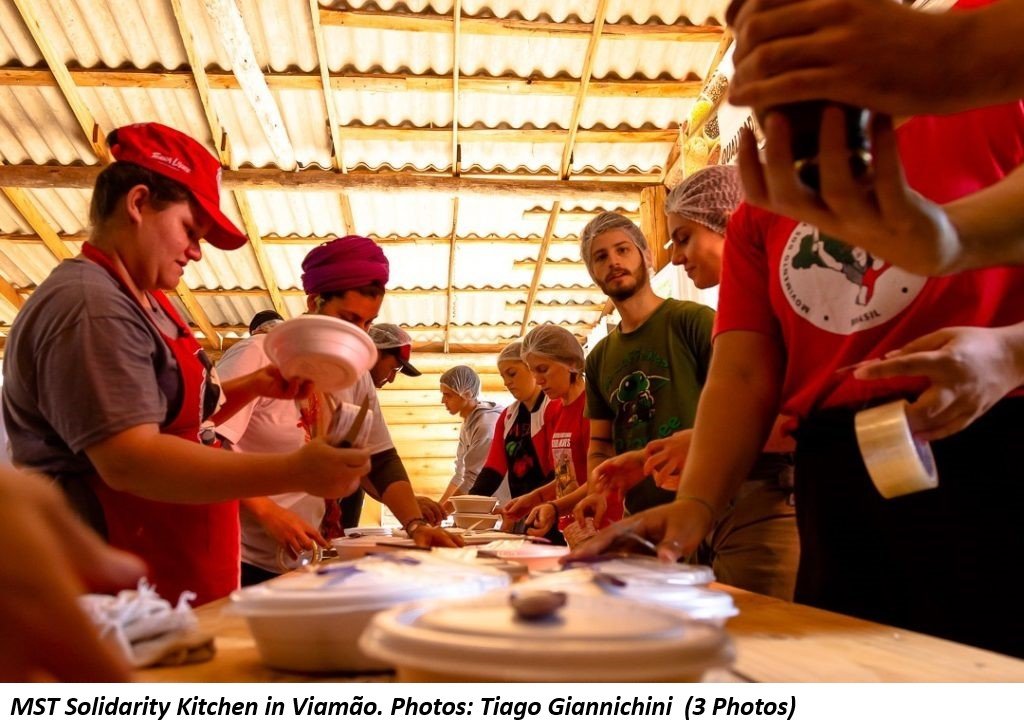
Since the onset of the flood in Rio Grande do Sul, which began with the first recorded instances of flooding on April 27th in the municipalities of Canoas, Novo Hamburgo, and Porto Alegre, the MST, along with partner entities, has been conducting the Landless Solidarity Campaign in Rio Grande do Sul to aid the over 2.1 million people affected by the heavy rains and floods in the state to date.
In addition to the campaign, several actions are also being developed to alleviate the suffering of affected families.
To date, six MST settlements have been affected in the metropolitan region of Porto Alegre and the central region of the state. They are: Integração Gaúcha (IRGA) and Colônia Nonoaiense (IPZ) in Eldorado do Sul; Santa Rita de Cassia e Sino in Nova Santa Rita; September 19th in Guaíba; and Tempo Novo in Taquari. The crisis has left 870 people homeless, with homes flooding and the loss of planted and stored food production, animals, and tools.
Losses are also significant in relation to structures, machinery, raw materials, and products for sale from cooperatives and agro-industries located in these settlements. For example, all Agroecological Rice production in the planted area and in stock for marketing, as well as infrastructure, processing machinery, and transport networks, have been affected.
As of this Monday (May 13), the floods and storms that have hit Rio Grande do Sul since the end of April have already resulted in the deaths of 147 victims. The Civil Defense bulletin also records 127 people missing and 806 injured. The number of people away from home reaches 617,000.
Here is a summary of MST’s main solidarity actions in the state:
1. Rescues of people from public shelters and other locations to MST spaces
The Movement welcomed 13 families from the Integração Gaúcha settlement (IRGA), who had their homes and crops flooded in the Hugo Chaves settlement, together with the Cooperativa de Produção Agropecuária dos Assentados de Tapes-RS (COOPAT), located in the municipality.
Families from the Apolônio de Carvalho settlement, who were in the Cootap silos, were also rescued and brought to the settlement headquarters. Families from the Integração Gaúcha settlement (IRGA) were also welcomed at the headquarters of the 19 de Setembro settlement, in Guaíba and at the school and homes of families from the Padre Josimo settlement.
2. Solidarity Kitchens
Given the concern about feeding these homeless families, the MST set up a solidarity kitchen in the Filhos de Sepé settlement, in sector “D”, in the municipality of Viamão, where they are being produced. Around 1,500 lunch boxes are distributed daily to affected families in Eldorado do Sul.
Part of this food is destined for families in the Padre Josimo settlement, who are isolated but were not directly affected by the floods. Landless are also organizing the production of meals at the headquarters of the Apolônio de Carvalho settlement to serve the families there, and meals are being made daily for families hosted in the Hugo Chaves settlement, in Tapes.
Still in the city of Pelotas, through a partnership between the MST, Levante da Juventude and Armazém do Campo, 400 meals are being produced per day, with the involvement of around one hundred volunteers. Solidarity lunch boxes are delivered to five shelters that are welcoming homeless people. Check out more information and find out how to support the Kitchen on social media on Instragram @armazemdocampo.pel and @solidaritypelotas2024.
3. Donation of Hygiene and Cleaning materials
The MST organized 200 hygiene kits and cleaning materials for cleaning work in houses where the water has already receded, in the Sinos settlements, in Nova Santa Rita; Colônia Nonoaiense (IPZ) and Apolônio de Carvalho, in Eldorado do Sul. In addition, there is a joint effort to remove debris, with the cost of renting backhoes and bucket trucks for the services.
4. Medical and psychological assistance
Starting this Monday (13), the Landless are sending basic health kits to homeless families, in places where there is access for the material to reach people.
For the medical and psychological care of homeless Landless families in the state, the Movement is organizing a Health Brigade with doctors trained in Cuba, Venezuela and other doctors who support the Network of Popular Doctors and the José Marti Association. The intention is also to create a Network of Supporters for Mental Health.
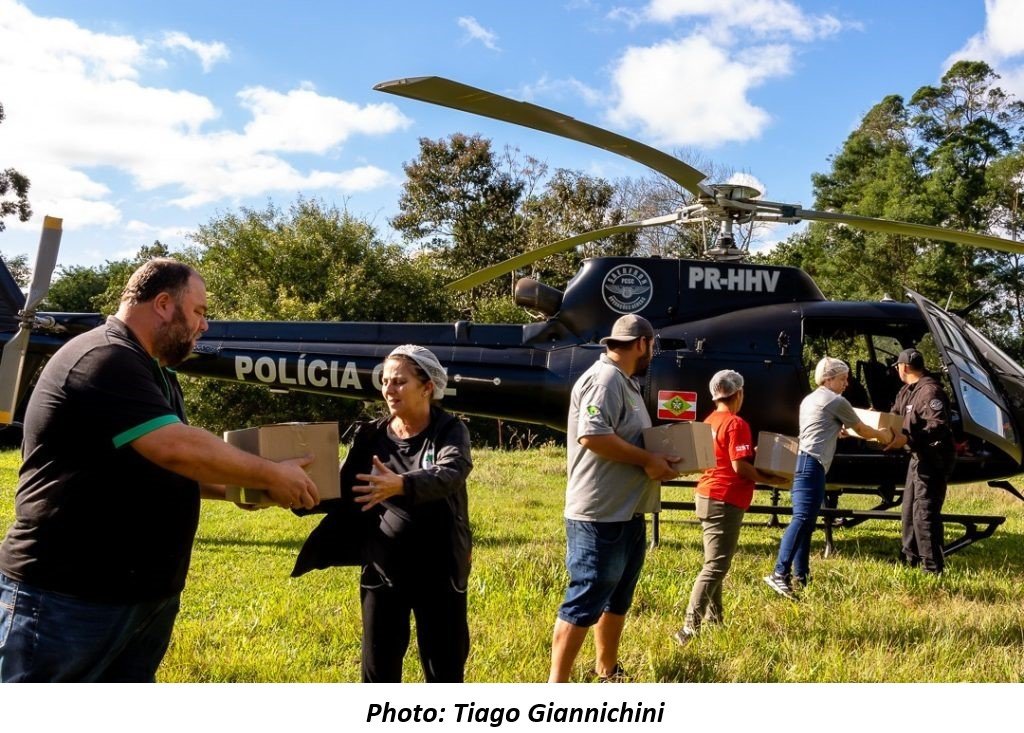
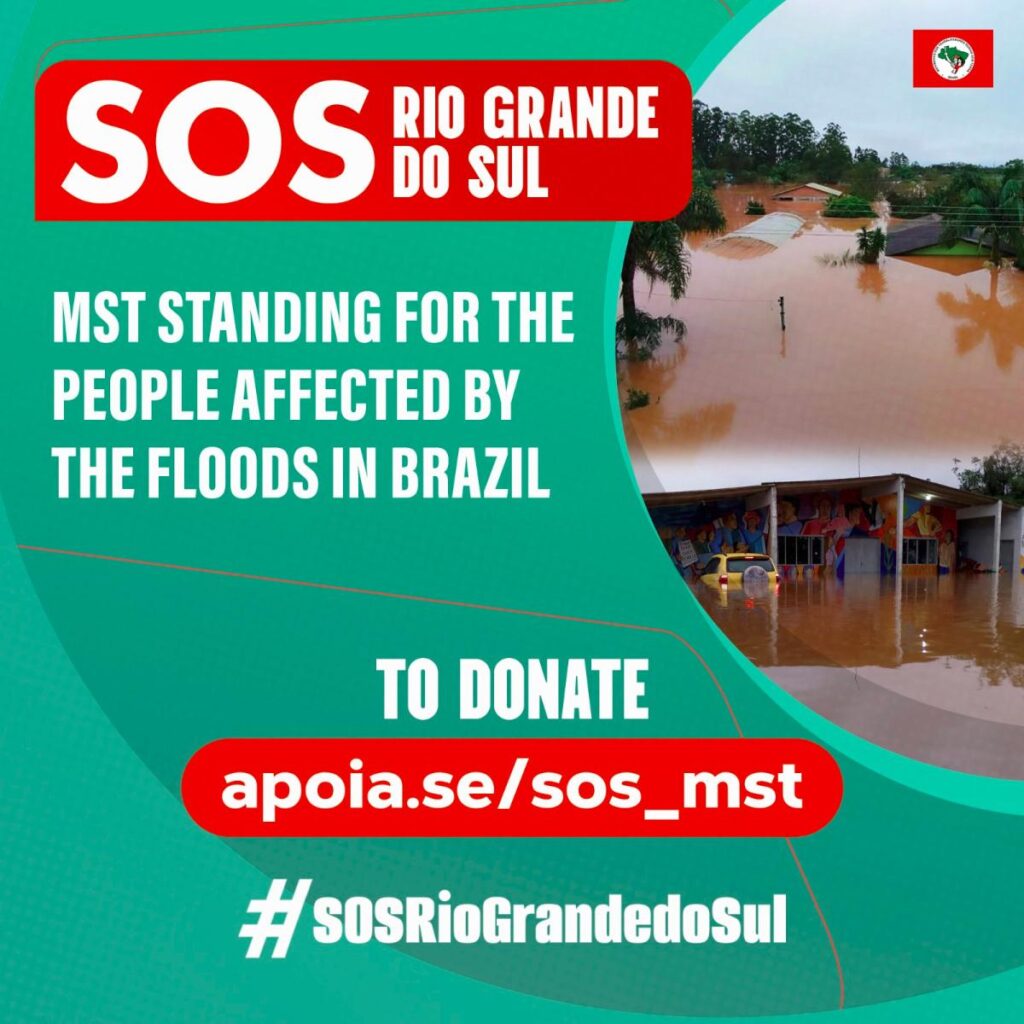
International Donations:
Contributions are essential for the approximately 2.1 million people affected by storms and floods to date in Rio Grande do Sul. International support is essential. Please donate what you are able.

